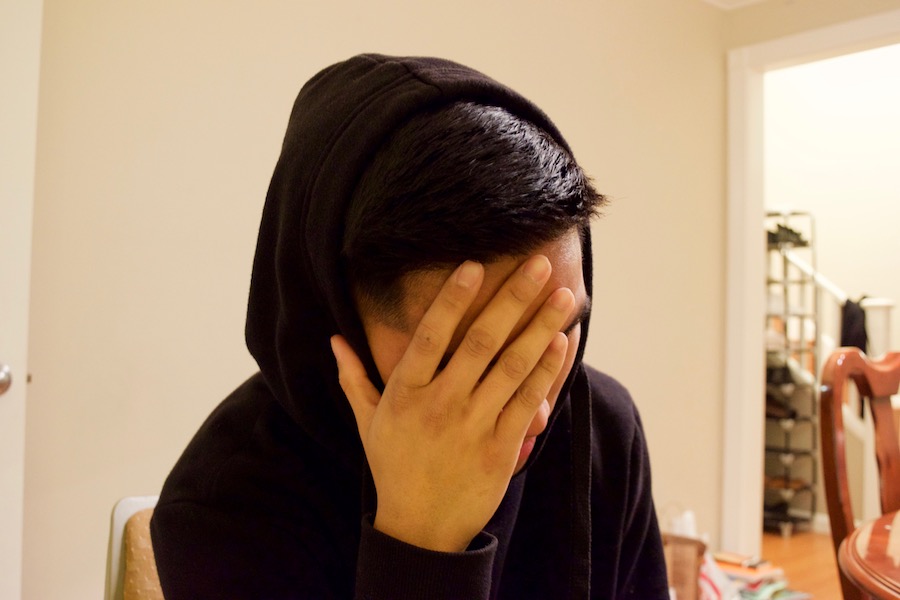
Men remain silent on their mental health due to lack of resources
 Mental illness can affect anyone regardless of age, race, socioeconomic status or background. It doesn’t strongly target one group over another, making every case equally important. However, it’s easy to recognize that there are groups that don’t get the same amount of attention as others. Specifically, I’m talking about the lack of awareness for men’s mental health. Men are acknowledged for their mental health issues in statistics, but there are hardly any such stories shared from men’s perspectives. Due to society’s constructed gender roles and stigma on mental health, men are less likely to open up about their illnesses and seek help to better themselves.
Mental illness can affect anyone regardless of age, race, socioeconomic status or background. It doesn’t strongly target one group over another, making every case equally important. However, it’s easy to recognize that there are groups that don’t get the same amount of attention as others. Specifically, I’m talking about the lack of awareness for men’s mental health. Men are acknowledged for their mental health issues in statistics, but there are hardly any such stories shared from men’s perspectives. Due to society’s constructed gender roles and stigma on mental health, men are less likely to open up about their illnesses and seek help to better themselves.
Men suffer from mental health issues at a rate similar to women, but they often refrain from seeking professional help. Max Birchwood, a professor of youth mental health at the University of Warwick, states that the biggest barrier stopping men from speaking up is that they don’t feel comfortable discussing their emotions with anyone. Gender roles set men and women up with societal norms to follow, and when it comes to acknowledging feelings and emotions, men aren’t “supposed” to reveal themselves. They are taught to remain tough, independent and have control of their emotions, but when mental illness strikes it’s harmful to force oneself to maintain this composure. Boys are told to “be a man” and “suck it up” as they mature, which damages their mental health. These sayings deter them from sharing their thoughts because they recognize it as unacceptable behavior for men.
Due to the lack of personal testimonies from men online, I turned to a few of my male friends, asking for their thoughts on the issue of gender roles influencing the lack of attention on male mental health.
“A large part of the societal norms I’ve experienced growing up as a male is accepting the fact that, when things get hard, you have to suck it up,” said Erich Baur, a fifth-year mechanical engineering major. “Crying, venting and other emotional outletting is seen as weak and feminine.”
Such statements support the idea that masculine conditioning contributes to men not acknowledging their emotions — let alone their mental illnesses.
If men are just as likely to be affected by mental illness as women, then why aren’t there resources for them as well? Although evidence suggests that males are less likely to utilize mental health services than women, it’s still important that they have the option. Of course, there is the standard resource of professional therapy, but there aren’t organizations dedicated to helping men. If you search women’s mental health, several links provide access to resources. But when you search the same for men, most of the information that comes up is statistics for mental illness and suicide in the male population.
Creating more places for men to turn to for guidance could make a huge impact for them. Men are careful about whom they choose to open up to, but sometimes that’s still not enough to make them feel accepted.
“I was sent to therapy, which helped ease the tension in my life, but I received no such help from my family or friends,” Baur said.
“Coming to terms with my mental health issues, there were a lot of people in my life [who] sort of just dismissed what I said,” added Anthony Aviles, a third-year undeclared student.
This concern demands more attention. Fortunately, the National Institute of Mental Health developed a project to do just that. They launched the Real Men, Real Depression campaign to educate society with stories from men about their experiences with depression. The campaign ran from 2003 to 2005 and became one of the nation’s first organized public efforts to build awareness on the dangerously silent issue.
No one is immune to mental illness, so why does society fail to recognize that men go through it, too?
Written by: Jolena Pacheco — mspacheco@ucdavis.edu
Disclaimer: The views and opinions expressed by individual columnists belong to the columnists alone and do not necessarily indicate the views and opinions held by The California Aggie.




